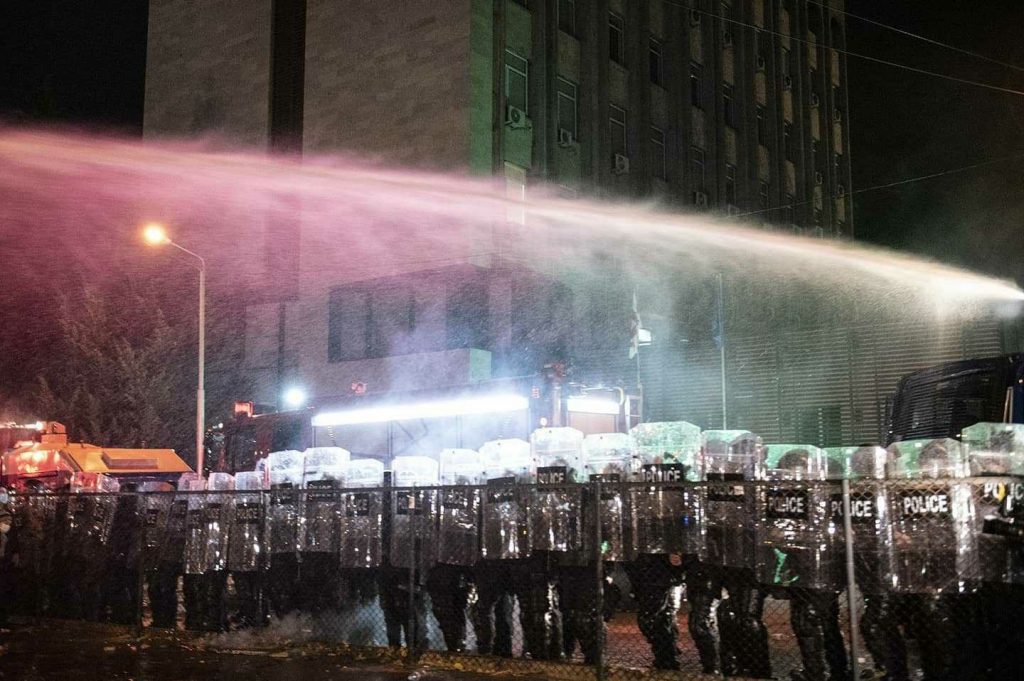A Step Backward: Civil and Political Rights in Georgia in 2020

As 2020 ended, the Georgian Democracy Initiative (GDI) issued a report with a review of the year regarding the human rights situation in Georgia. According to the NGO’s report, the state’s level of respect for civil and political rights declined, especially considering the challenges posed by the pandemic and the political environment ahead of the autumn parliamentary elections.
The report highlights several rights, including freedom of expression, religion, and assembly, as well as electoral rights and access to justice. A short synopsis of several rights highlighted in the report is as follows:
Right to Peaceful Assembly
According to GDI’s report, violations of the right to peaceful assembly were observed in 2020. During a peaceful protest over the election results, police used excessive force, namely water cannons against demonstrators. Additionally, three demonstrators were detained and fined, with one of them being detained for three days based on an unsubstantiated court decision.
Electoral Rights
Civil society expressed concerns over electoral rights, as referenced in a joint assessment of 28 Georgian civil society organisations which reported that the 2020 parliamentary elections were the least democratic since 2012, when the Georgian Dream Party first came to power. Violations of electoral processes in the 2020 elections included a delay in publishing the primary results and a discrepancy in the vote count protocols from 8% of polling stations. Another concern was the common courts’ response to the requests on checking those questionable results. The decisions were, according to GDI, ‘insufficiently justified, and their delivery was delayed, which prevented them from being appealed to a higher court’.
Constitutional Control and Access to Justice
The Georgian authorities made controversial decisions during the COVID-19 crisis and state of emergency, including changes to the membership of the Constitutional Court. NGOs had called on the Court not to make such appointments during the state of emergency as it would be difficult for public oversight and monitoring of the process. GDI’s report notes a decline in the Court’s response rate on cases after the election of two new judges and a chairperson, indicating the ‘the court has not properly fulfilled its constitutional obligations.’
The report also mentions at least three cases against individuals, which GDI believes to be politically motivated in nature and for which there have been reported ‘shortcomings’ in individuals’ access to justice and in the law enforcement’s obligation to carry out transparent and thorough investigations.
Read the full report in English here.


